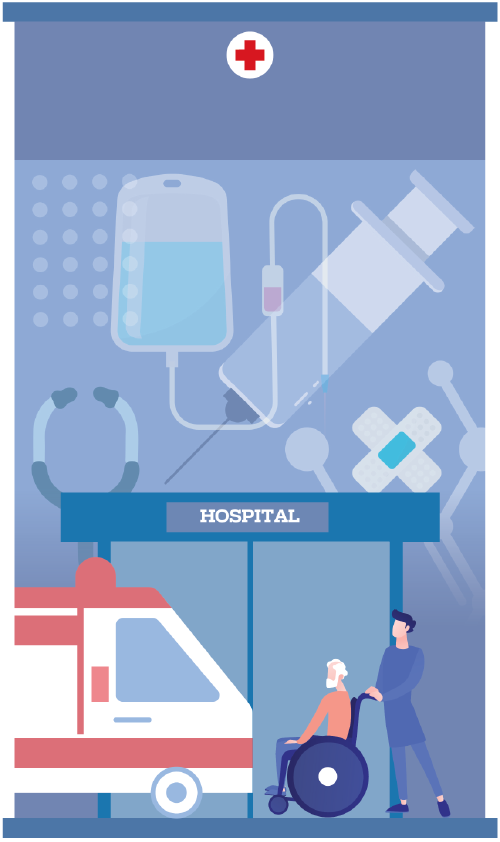Nine Shanghai districts offer hospital escorts for elderly

Nine districts in Shanghai will each train at least 100 professionals by July to assist elderly patients in navigating hospitals as they master basic health and nursing knowledge, the municipal government announced on Saturday.
The pilot program is the latest effort by the megacity, which has a rapidly aging population, to support its senior residents — particularly those who live alone or with elderly spouses — as they face increasing difficulties accessing medical services in an increasingly digitalized system.
Nurses, nursing home workers and social workers specializing in elderly services will be recruited for the training, which will be organized by district civil affairs bureaus. Textbooks covering common diseases, medications and medical equipment will be provided, and professionals from relevant organizations and college departments will conduct the training and assessments.
Beyond developing a group of trained escorts to assist elderly patients in hospitals, the program is also intended to help Shanghai establish citywide standards for the service, including standardized procedures and pricing mechanisms, the government said. Officials will also explore regulatory and quality monitoring measures to ensure a consistent level of care.
The demand for hospital escort services first emerged in China about a decade ago as urbanization led to more families living apart and as hospitals adopted digital systems. However, the profession was not included in the country's most recent occupational classification list in 2022.
While such services are available in both large and small cities, they currently lack standard procedures and pricing policies. Fees are typically charged by the hour, with a four-hour service costing about 300 yuan ($41) in major cities like Shanghai, while lower fees are charged in smaller cities.
According to an official document, elderly care facilities in districts including Pudong, Songjiang, Xuhui and Huangpu will assist authorities in refining service guidelines. Escorts will be trained to help dependent and semi-dependent elderly patients with hospital visits, including registration, physical examinations, payments, medication collection and post-visit communication with family members. They will also provide psychological comfort.
The document encourages escorts to familiarize themselves with hospital layouts and digital tools for appointment booking, payments and registration.
Qiao Xiumei, a 75-year-old Shanghai resident whose husband has lost most of his eyesight, said she would consider using the service as long as it is reliable and does not compromise her privacy.
"It's troublesome to ask relatives to accompany me, but I really struggle to navigate the hospital," she said. "For different procedures, patients have to go to different floors in different buildings, and they are far apart. The characters on digital screens are also difficult to read."
Su Mingwei, 38, has worked as a hospital escort in Beijing for three years, primarily assisting elderly patients, mothers with infants and people from out of town seeking medical care in the capital.
"People in this profession must be extremely patient and attentive to the emotions of elderly patients," she said. "We also help facilitate communication between doctors and patients, guiding patients to provide useful information and ask relevant questions."
Official data showed that in 2023, more than 5.68 million people age 60 and older lived in Shanghai, accounting for 37.4 percent of the city's permanent residents.